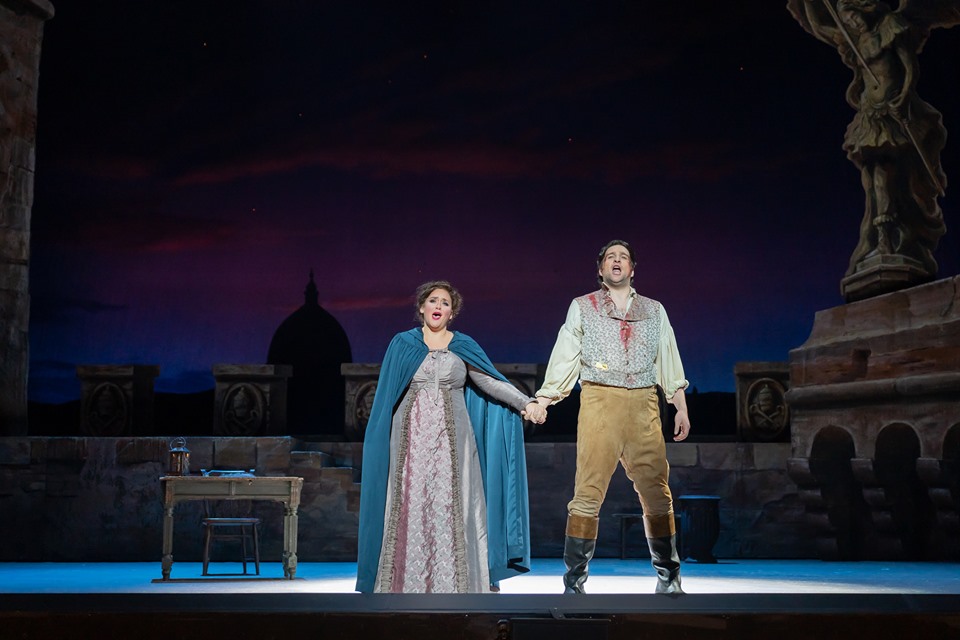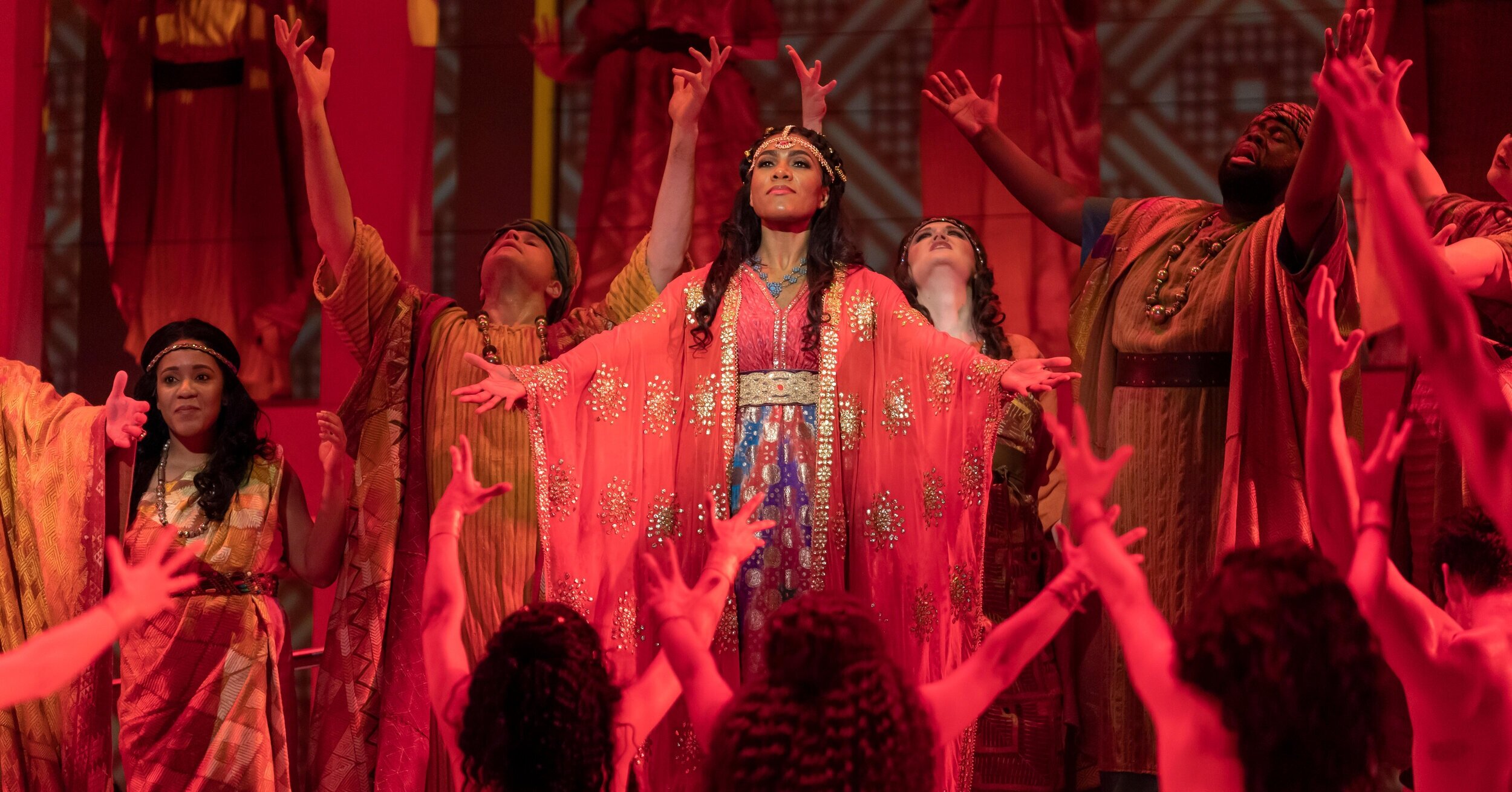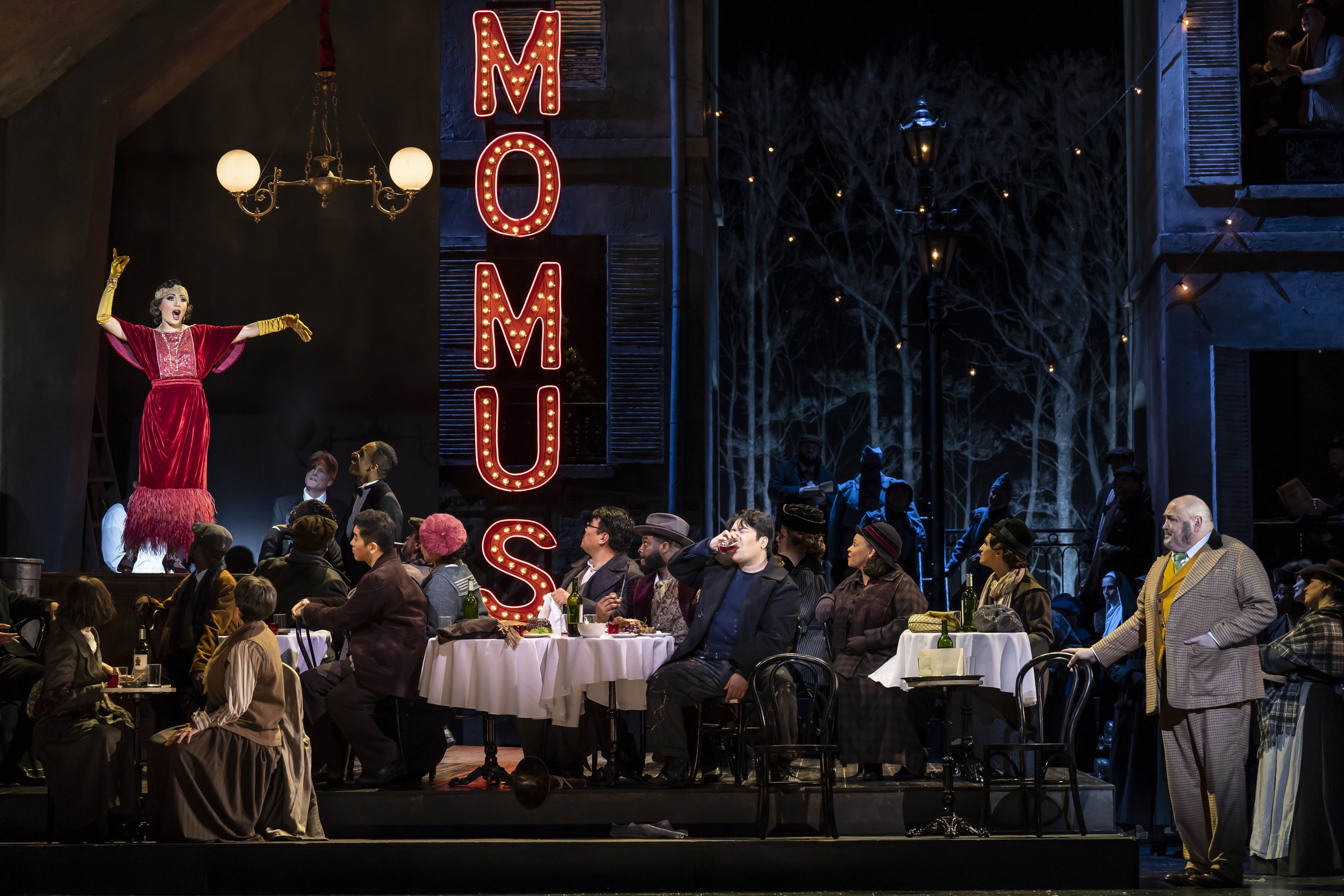Face the audience. Now sing.

The plot points that drive the drama of Puccini’s Tosca include corruption, attempted rape, torture, murder, and suicides. It’s a tightly wound story that moves quickly, built around a jealous, high-strung diva, her lover - a heroic artist, and a corrupt law official hell-bent on satisfying his lust. The grittiness of the story, and its tense, economic score, make it one of the more compelling operas in the canon, and its gorgeous music makes it one of the most popular. Done right, Tosca feels vivid and alive - how can it not with all of that bad behavior going on? Done poorly, well, there’s always those great tunes, and Tosca is stuffed with them.
Washington National Opera’s new production of Tosca, which opened on May 11th, is only a partial success. On the plus side is a cast full of talented singers, especially leads Keri Alkema (Tosca) and Riccardo Massi (Cavaradossi), who frequently sound marvelous, despite some curiously slow pacing in unexpected places from the conductor Speranza Scappucci. What keeps this Tosca from being great is the direction (misdirection, really) by Ethan McSweeny,, whose stage instincts when it comes to opera appear to be limited to unimaginative, repetitive sequences of park and bark, with increasingly dull results (McSweeny is primarily a theater director).
Not only is there zero passion between the lovers, they seem almost completely disinterested in the other’s existence, delivering nearly every word out of their mouths directly to the audience rather than to each other. The rare moments of tension that do show up take their time, arriving deep into the second act, and the little drama found in the third act leans heavily on Puccini’s nearly bullet-proof music and the taut libretto by Luigi Illica and Giuseppe Giacosa. Even the Shepherd Boy (Aidan Stanton-Brand), stops sweeping his way across the stage at the beginning of Act 3 to stand completely still, face the audience, and deliver his song. Please, don’t let McSweeny anywhere near La Boheme.
This approach to opera direction has been out of fashion for decades, and for good reason: it’s boring to watch, presents the art form as a museum piece, and offers nothing to an audience raised on pop culture or those trying to expand their interests past pop culture. There were a lot of young people in the opera house last night who probably enjoyed their first Tosca, but I bet few of them found it an especially gripping experience.
And that’s a shame because there are two reasons why they could have and should have. First, a well-conceived and performed Tosca can be musically and dramatically thrilling, capable of delivering that emotional jolt that only opera can deliver. Second, Keri Alkema, a former Domingo-Cafritz artist returning to WNO in her first leading role, and Riccardo Massi, making his WNO debut, sing Puccini’s music very well, and their voices paired marvelously in the opera’s splendid duets. With better direction these could have been convincing, moving portrayals, the kind that create a buzz among opera fans and the press.
But Alkema’s Tosca only becomes believable toward the end of the showcase aria “Vissi d’arte,” near the end of Act 2, and it doesn’t last. Massi made the most of conductor Scappucci’s lack of supporting melody in “Recondita armonia,” belted out the second of his two “Vittoria!”s with a surprisingly robust tone and scenery-chewing length, and sung a poignant “E lucevan le stelle.” But his Cavaradossi remained mostly a cipher until late in Act 3, when he marvelously conveys his understanding of Scarpia’s true intentions through facial expressions and body language. I only wish his character had a singing moment that was as dramatically convincing.
Veteran baritone Alan Held’s Scarpia is a mixed bag. He’s an imposing stage presence (unfortunately saddled with a ridiculous wig here), and a terrific actor, but he too, was set into park and bark mode, and with a voice that’s more suited to German repertoire, his characterization didn’t quite register as sinister as it should. David Cangelosi seems like luxury casting as Scarpia’s henchman Spoletta, but that’s a win for the audience, as is Michael Hewitt’s Angelotti. Wei Wu’s sacristan was well-sung, but distractingly proved to a harbinger of what was to come, performing the role as if he were singing Tonio in I Pagliacci, addressing his lines directly to the audience. The choruses, directed by Steven Gatham were forceful, bringing the Te Deum to a rousing conclusion at the end of Act 1, as they too, turned and faced the audience straight on.
The sets, courtesy of Seattle Opera, were vivid representations of the opera’s historical Rome locales. The lighting by Gary Marder was serviceable, but I doubt anyone in the audience appreciated the glaringly bright white light directed straight into their eyes during the Te Deum. Lena Rivkina’s costumes were appropriate for a Tosca, just not this Tosca - Alkema looked ill at ease in her splendid red gown, and Held looked like he belonged in a Donizetti comedy.
The bottom line: Alkema and Massi are solid talents who we should hear more from, hopefully under the direction of a more experienced opera director.
Remaining performances of WNO’s Tosca are on 5/17, 5/20, 5/22, and 5/25.
Latonia Moore sings Tosca on 5/19, with Robert Watson as Cavaradossi.
All performances at the Kennedy Center Opera House. Times and ticket information here.
Above: Keri Alkema and Riccardo Massi. Photo by Scott Suchman.





